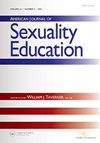不公平的获取、信息和支持:美国性教育项目的社会分析
IF 1.1
Q2 EDUCATION & EDUCATIONAL RESEARCH
引用次数: 0
摘要
本文章由计算机程序翻译,如有差异,请以英文原文为准。
Inequitable Access, Information & Support: A Social Analysis of America’s Sex Education Programs
Abstract Sex education has long been a controversial topic in the United States in terms of both policy and practice. A lack of consensus on the implementation of sex education, its content, and its participants continues to be a concern for equitable inclusion of all young people and their sexual and emotional health as a result. Current policy guidance and implementation fall short in developing and sustaining equitable access to medically accurate and socially meaningful curriculum. Analyzed through a sociological framework of functionalist theory, feminist theory, and queer theory, this sociological analysis examines the following questions: (1) Should sex education programs even exist?, (2) What should be taught in sex education courses?, and (3) Who should be represented in sex education content? Through a review of existing literature and available data on the experiences of young people, this scholarly commentary posits that current sex education practices in the United States are inequitable and insufficient based on their variability and lack of policy guidance. To address these shortcomings, the United States must implement comprehensive sex education in all schools to ensure equitable access, information, and support for all students.
求助全文
通过发布文献求助,成功后即可免费获取论文全文。
去求助
来源期刊

American Journal of Sexuality Education
EDUCATION & EDUCATIONAL RESEARCH-
CiteScore
2.40
自引率
8.30%
发文量
39
期刊介绍:
The American Journal of Sexuality Education speaks directly to the distinct, professional needs of sexuality educators and trainers. This peer-reviewed journal provides sexuality educators and trainers with current research about sexuality education programming, best practices, sample lesson plans, reports on curriculum development and assessment, literature reviews, scholarly commentary, educational program reports, media reviews (books, videos, internet resources, and curricula), and letters to the editor. The American Journal of Sexuality Education addresses a variety of sexuality topics and audiences, presenting up-to-date theory and practice, lessons, and evaluations.
 求助内容:
求助内容: 应助结果提醒方式:
应助结果提醒方式:


